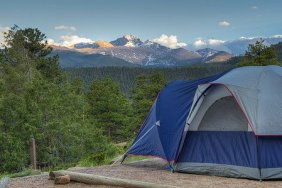 Any hiker will tell you that when it comes to backpacking and camping trips, weight is everything. Each item you pack adds to the overall carry weight, which will make smart hikers consider the importance and practicality of each and every ounce. Weight can be shaved in all aspects of a hiking trip, and today I’ve listed several ways to lighten your load the next time you hit the trail.
Any hiker will tell you that when it comes to backpacking and camping trips, weight is everything. Each item you pack adds to the overall carry weight, which will make smart hikers consider the importance and practicality of each and every ounce. Weight can be shaved in all aspects of a hiking trip, and today I’ve listed several ways to lighten your load the next time you hit the trail.
One area where you can easily shed some weight is the food you bring with you on a trip. Lengthy treks require high calories for energy, which doesn’t mean you’ll need to plan four-course meals. You can fulfill your calorie requirements while still eating delicious food by packing things such as trail mix, Clif bars, Ramen noodles, freeze-dried foods from companies such as Backpacker’s Pantry, jerky and sausage, and easy to make meals like couscous or powdered pancake mix. Foods like these contain more than 100 calories per ounce, which means their small size packs quite a big calorie punch. If you really want to shed the unnecessary weight, plan no-cook meals for shorter trips and you won’t need pots, utensils, or fuel.
There are several items that add unnecessary weight to your load that can be substituted or even left behind the next time you head out. Instead of a wallet, for example, it’s smarter to bring just your insurance card, ID, and some cash for emergencies. Instead of plastic containers for food, use Ziploc bags. A sleeping bag hood filled with rolled up clothes is a great substitute for a pillow. Instead of taking multiple cooking pots, plan one-pot meals. Some people like to bring a spare pair of shoes to wear around the campsite when you can save weight by unlacing your hiking boots and switching socks. Instead of bringing along a guidebook, I suggest making copies of only the pages you’ll need. The options listed above will shave around 4-pounds from your overall weight, which can be a big difference.
Lastly, take note of gear that goes unused when you hit the trail. Count items like tent stakes and guy lines and after each trip make a list of what you didn’t use. If after a few trips, you have items that consistently go unused, leave it behind from now on (unless it’s a first-aid supply).
Shaving weight is a vital part of backpacking and the more you engage in the activity, the more you begin to understand this fact. Each pound you lose is noticed and goes a long way towards your overall comfort on the trail. The tips outlined above will help you streamline your pack load and help you become better organized and prepared.








